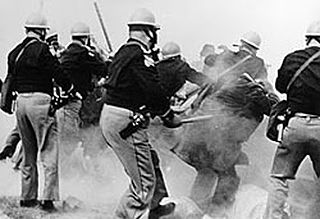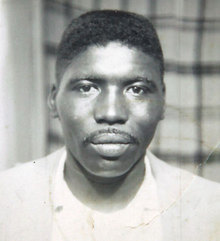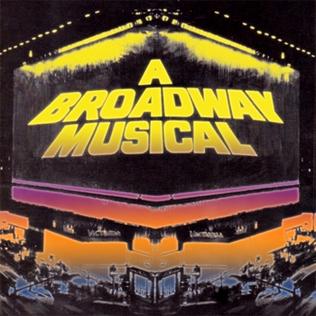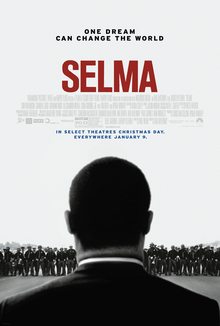Related Research Articles

Samuel George Davis Jr. was an American singer, actor, comedian and dancer.

Lena Mary Calhoun Horne was an American singer, actress, dancer, and civil rights activist. Horne's career spanned more than seventy years, appearing in film, television, and theatre. Horne joined the chorus of the Cotton Club at the age of sixteen and became a nightclub performer before moving on to Hollywood and Broadway.

The Selma to Montgomery marches were three protest marches, held in 1965, along the 54-mile (87 km) highway from Selma, Alabama, to the state capital of Montgomery. The marches were organized by nonviolent activists to demonstrate the desire of African-American citizens to exercise their constitutional right to vote, in defiance of segregationist repression; they were part of a broader voting rights movement underway in Selma and throughout the American South. By highlighting racial injustice, they contributed to passage that year of the Voting Rights Act, a landmark federal achievement of the civil rights movement.

Viola Fauver Liuzzo was an American civil rights activist in Detroit, Michigan. She was known for going to Alabama in March 1965 to support the Selma to Montgomery march for voting rights. On March 25, 1965, she was shot dead by three Ku Klux Klan members while driving activists between the cities and transportation.

James Joseph Reeb was an American Unitarian Universalist minister, pastor, and activist during the civil rights movement in Washington, D.C., and Boston, Massachusetts. While participating in the Selma to Montgomery marches actions in Selma, Alabama, in 1965, he was murdered by white segregationists and white supremacists, dying of head injuries in the hospital two days after being severely beaten. Three men were tried for Reeb's murder but were acquitted by an all-white jury. His murder remains officially unsolved.

The Majestic Theatre is a Broadway theater at 245 West 44th Street in the Theater District of Midtown Manhattan in New York City. Opened in 1927, the theater was designed by Herbert J. Krapp in a Spanish style and was built for real-estate developer Irwin S. Chanin. It has 1,681 seats across two levels and is operated by The Shubert Organization. Both the facade and interior are New York City landmarks.

James Gardner Clark, Jr. was the sheriff of Dallas County, Alabama, United States from 1955 to 1966. He was one of the officials responsible for the violent arrests of civil rights protestors during the Selma to Montgomery marches of 1965, and is remembered as a racist whose brutal tactics included using cattle prods against unarmed civil rights supporters.

Sheyann Webb-Christburg is a civil rights activist known as Martin Luther King Jr.'s "Smallest Freedom Fighter" and co-author of the book Selma, Lord, Selma. As an eight-year-old, Webb took part in the first attempt at the Selma to Montgomery march across the Edmund Pettus Bridge on March 7, 1965, known as Bloody Sunday.

Jimmie Lee Jackson was an African American civil rights activist in Marion, Alabama, and a deacon in the Baptist church. On February 18, 1965, while unarmed and participating in a peaceful voting rights march in his city, he was beaten by troopers and fatally shot by an Alabama state trooper. Jackson died eight days later in the hospital.
J. L. Chestnut Jr. was an author, attorney, and a figure in the Civil Rights Movement. He was the first African-American attorney in Selma, Alabama, and the author of the 1991 autobiographical book, Black in Selma: The Uncommon Life of J.L. Chestnut, Jr., which chronicles the history of the Selma Voting Rights Movement, including the 1965 Selma to Montgomery marches and Bloody Sunday.

Golden Boy is a 1964 musical with a book by Clifford Odets and William Gibson, lyrics by Lee Adams, and music by Charles Strouse.

"Mississippi Goddam" is a song written and performed by American singer and pianist Nina Simone, who later announced the anthem to be her "first civil rights song". The song was released on her album Nina Simone in Concert in 1964, which was based on recordings of three concerts she gave at Carnegie Hall earlier that year. The album was her first release for the Dutch label Philips Records and is indicative of the more political turn her recorded music took during this period.

A Broadway Musical is a musical with a book by William F. Brown, lyrics by Lee Adams, and music by Charles Strouse. The Broadway production closed after 14 previews and only one performance on December 21, 1978.

The City of St. Jude is a 36-acre (15 ha) campus in Montgomery, Alabama, hosting a high school, hospital, and Catholic church. It was founded in 1934 by Fr Harold Purcell with the aim of bringing "light, hope and dignity to the poor," regardless of race.

The Edmund Pettus Bridge carries U.S. Route 80 Business across the Alabama River in Selma, Alabama. Built in 1940, it is named after Edmund Pettus, a former Confederate brigadier general, U.S. senator, and state-level leader of the Alabama Ku Klux Klan. The bridge is a steel through arch bridge with a central span of 250 feet (76 m). Nine large concrete arches support the bridge and roadway on the east side.
Walter Marks is an American songwriter, playwright, screenwriter, and novelist. He is probably best known for his song "I've Gotta Be Me", recorded by Sammy Davis Jr, Tony Bennett, Michael Jackson and many others. He has also written songs recorded by Barbra Streisand, The Temptations, Della Reese, Little Anthony and the Imperials, Steve Lawrence, Eydie Gorme, and other artists.

Selma is a 2014 historical drama film directed by Ava DuVernay and written by Paul Webb. It is based on the 1965 Selma to Montgomery voting rights marches which were initiated and directed by James Bevel and led by Martin Luther King Jr., Hosea Williams, and John Lewis. The film stars actors David Oyelowo as King, Tom Wilkinson as President Lyndon B. Johnson, Tim Roth as George Wallace, Carmen Ejogo as Coretta Scott King, and Common as Bevel.

Samuel Leamon Younge Jr. was a civil rights and voting rights activist who was murdered for trying to desegregate a "whites only" restroom. Younge was an enlisted service member in the United States Navy, where he served for two years before being medically discharged. Younge was an active member of the Student Nonviolent Coordinating Committee (SNCC) and a leader of the Tuskegee Institute Advancement League.
This is a timeline of the civil rights movement in the United States, a nonviolent mid-20th century freedom movement to gain legal equality and the enforcement of constitutional rights for people of color. The goals of the movement included securing equal protection under the law, ending legally institutionalized racial discrimination, and gaining equal access to public facilities, education reform, fair housing, and the ability to vote.
Sheila Rae Sullivan is a Broadway actress and singer.
References
- ↑ Ebony. Negro Digest Publishing Company, Incorporated. 2008. p. 58.
- ↑ Philip Benjamin (5 April 1965). "'Broadway Answers Selma' Nets $150,000 for Civil Rights Fight". The New York Times . Retrieved 27 April 2021.
- 1 2 3 4 5 6 Emilie Raymond (8 June 2015). Stars for Freedom: Hollywood, Black Celebrities, and the Civil Rights Movement. University of Washington Press. p. 195. ISBN 978-0-295-80607-5.
- ↑ Paul Krassner (1971). How a Satirical Editor Became a Yippie Conspirator in Ten Easy Years. Putnam. p. 123.
- 1 2 Brian Ward (6 July 1998). Just My Soul Responding: Rhythm and Blues, Black Consciousness, and Race Relations. University of California Press. p. 314. ISBN 978-0-520-21298-5.
- 1 2 Wil Haygood (28 May 2014). In Black and White: The Life of Sammy Davis, Jr. Knopf Doubleday Publishing Group. p. 366. ISBN 978-0-8041-7252-3.
- ↑ Critical Digest: The NYC Theatre Newsletter Digest Service. T.M. Kraus. 1965. p. 27.
- 1 2 Johnson Publishing Company (22 April 1965). Jet. Johnson Publishing Company. p. 63.
- ↑ Coda. John Norris. 1967. p. 7.
- ↑ Nielsen Business Media, Inc. (3 April 1965). Billboard. Nielsen Business Media, Inc. p. 10.
{{cite book}}:|author=has generic name (help)